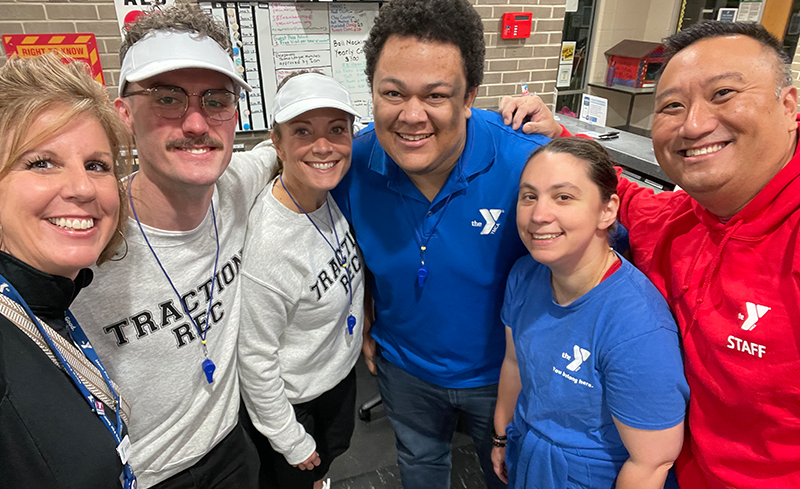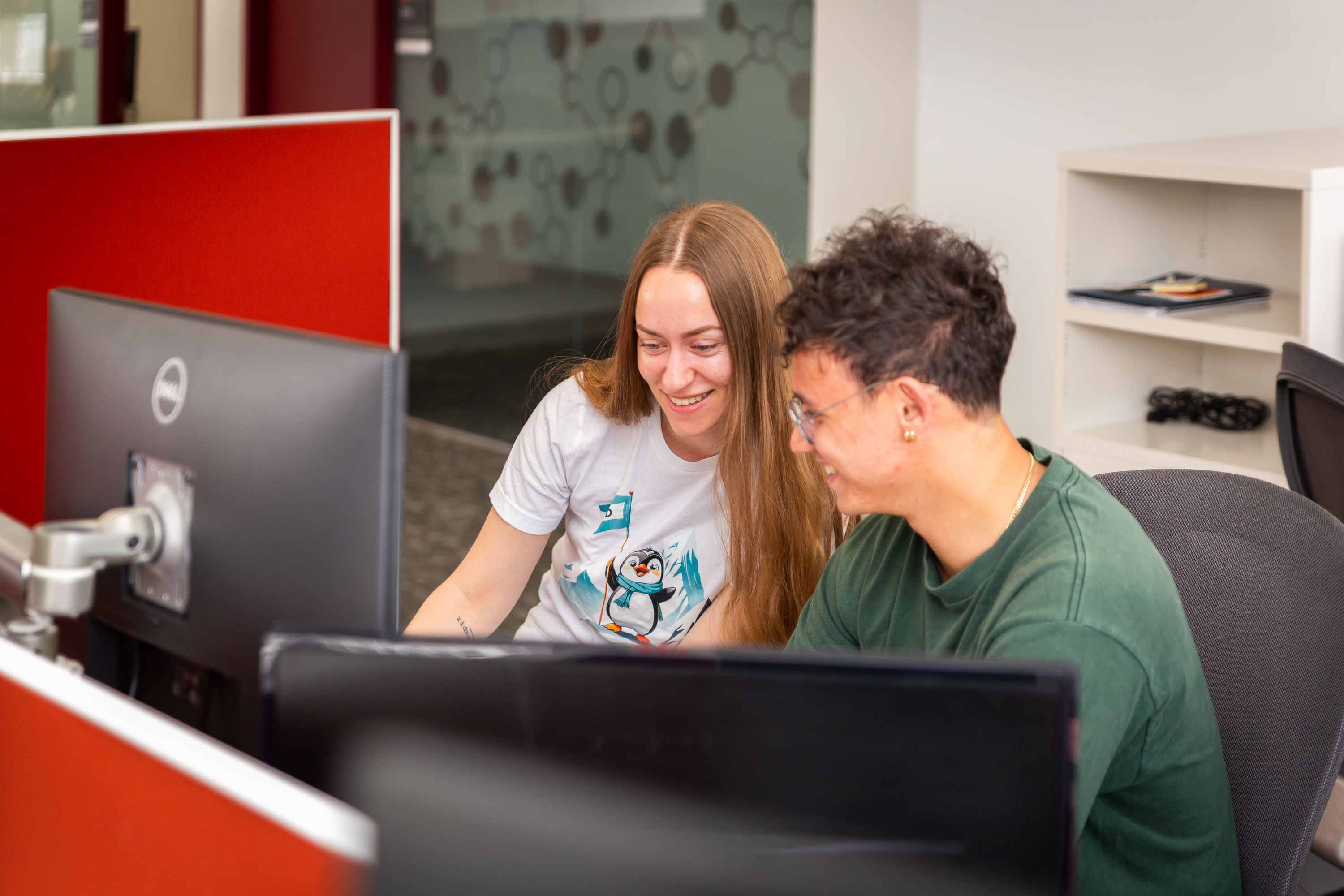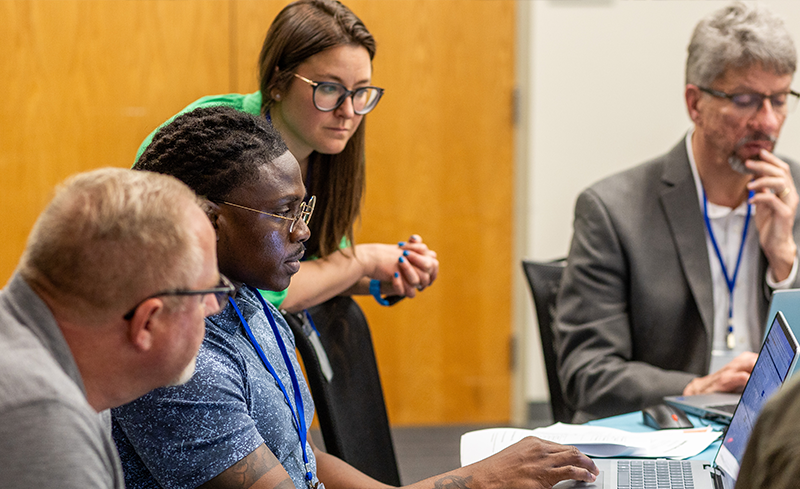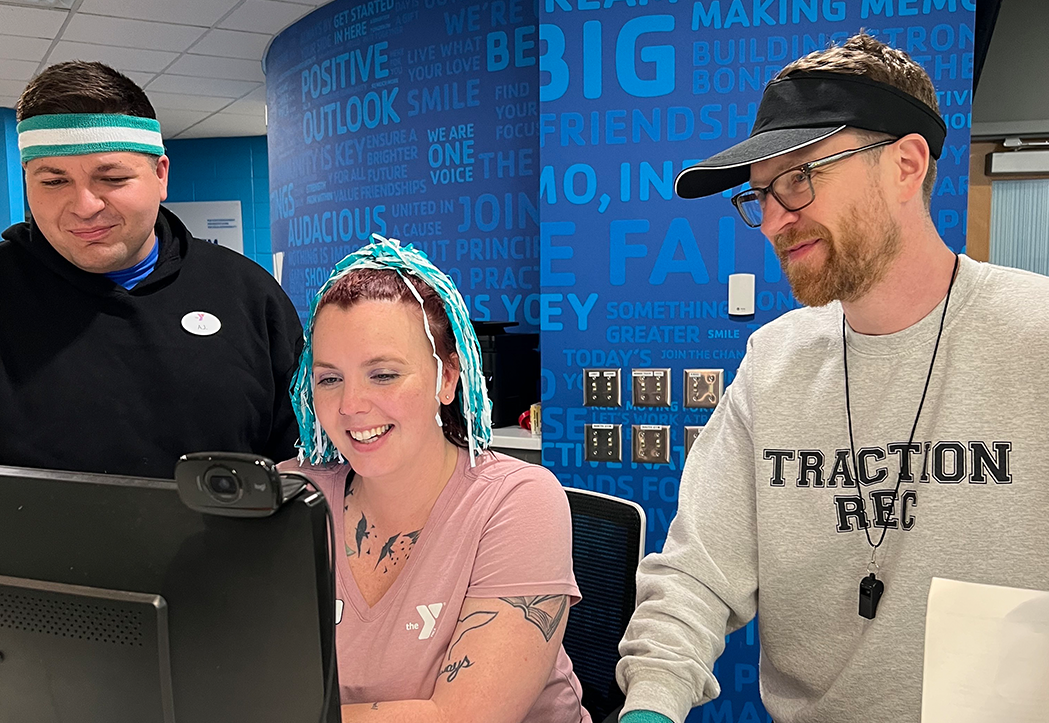Many community centers, including JCCs and YMCAs, are turning to Salesforce to manage the complexities of modern nonprofit operations. This shift has amplified the need for qualified technologists who can address the unique challenges and day-to-day to support nonprofits their operations. Within this ecosystem, the role of the Salesforce Admin is critically important. While it’s a specialized position, there’s no need to hire an external consultant. The Salesforce Admin you’re looking for might already be working with you.
Hiring from within is especially advantageous in a nonprofit context where resources such as time, personnel, and budget are often limited. After all, someone hired from within the organization likely has the institutional knowledge needed to make the technology work for your particular organization. Anyone can learn Traction Rec and become Salesforce certified, but understanding the nuances to customize the system can sometimes best happen with someone who knows your organization inside and out.
<iframe width="560" height="315" src="https://www.youtube.com/embed/9NepIKTDLHE" title="Creating a future for your staff with upskilling" frameborder="0" allow="accelerometer; autoplay; clipboard-write; encrypted-media; gyroscope; picture-in-picture; web-share" allowfullscreen></iframe>
An investment in your new CRM technology becomes an investment in your own staff. John Merritt from YMCA of San Diego County shares how they identified champions in their YMCA, leading to the emergence of near leaders from their Traction Rec implementation.
How to find a Salesforce Admin for your community center
“They’re probably hidden in your departments,” says Meghan McQuaid, an account executive at Traction Rec. The initial challenge is understanding the current operational system, which can often be a tangled web of disparate systems. Once you have a grasp of this, identifying the right candidate for the Salesforce Admin role becomes easier. If there isn’t already a key person managing your database, someone else might be willing to take on the responsibilities. Meghan emphasizes that you don’t need a developer or someone with coding skills; you just need someone keen to take on a new challenge.
Admin Spotlight: Tiffany Stewart-Harris from the YMCA of Pierce and Kitsap Counties
Tiffany Stewart-Harris has worked for the YMCA of Pierce and Kitsap Counties for over a decade, starting as a membership director and eventually overseeing member engagement at the Association Office. Tiffany became a key project member in the YMCA’s implementation of Traction Rec and is now part of the YMCA's Salesforce Admin team. She took a moment to share a bit about her journey.
Traction Rec: Tiffany, can you tell us how you ended up down the “accidental admin” career path at the YMCA?
Tiffany: About four years ago, there was an opportunity to take a leadership role at our Association Office to work with operations and make sure we were providing the best member experience across the board. In that position, I was part of the project team for our Salesforce and Traction Rec implementation, which also involved our IT team. I learned so much, and thought that I could contribute to enhance processes and data analytics through Salesforce, so I joined IT as a business analyst. Within this new position, I continued my journey into better understanding the “how” and “why” of Salesforce, which led me to my Salesforce Administrator Certification.
Traction Rec: Congrats on just passing your Salesforce Admin Certification! Did you ever see yourself as a “techie”?
Tiffany: Oh no, I have never considered myself a techie by any means. Actually my seven-year-old son knows how to use my cell phone better than me and educates me regularly. However, in the short period of time I have been with the IT team, I have been blown away each day with the depth of knowledge and reach IT has within our organization.
Traction Rec: Tell us how your experiences at the branch and operation levels have helped you.
Tiffany: Having firsthand knowledge of how processes and procedures work was a game changer for our team. It allowed us to craft an idea or process that could be consumable by that department without them getting overwhelmed or side-tracked.
Traction Rec: What would you recommend to someone just starting their Salesforce learning journey?
Tiffany: I think it was very helpful for me to understand our business processes within Traction Rec, so that when I dove into SalesforceTrailhead to learn about the Salesforce platform it made it easier to understand. Traction Rec has done such a great job of creating this product on Salesforce, and the Trailheads really connected the dots for me. Lastly, I think since I am not much of a techie, I really connected with my teammates to help fill the gaps. That was a game changer for sure. Truly, my journey to my Salesforce Administrator Certification was a team effort, and I couldn’t have done it without the help of so many.
The benefits of upskilling from within
One of the main benefits of upskilling from within the organization is the institutional knowledge your candidate already possesses. They understand the unique needs and challenges of your organization, which can lead to more effective and customized solutions.
By investing in your current employees, you also boost morale and loyalty, showing your team that you value their growth and development. Plus, it’s often quicker and more cost-effective to train existing staff than to hire and onboard new employees. Building professional development skills often translates into accelerated career growth, which leads to higher job satisfaction. Happier employees stay longer at an organization, reducing the costs associated with having to backfill roles and find new talent.
Upskilling success story: YMCA of Pierce Kitsap-Counties
Bruce Caudill, CIO of YMCA of Pierce Kitsap Counties, reflects on upskilling opportunities and Tiffany’s success in the role. As an early adopter of previous technology, he could see that she had good technical aptitude. “I’m a big believer that you can always teach people,” says Bruce. “The toughest part is finding the right people for our team, our business and our mission. Once we have that, the rest figures itself out.”
Finding the right person can mean many things. Bruce looks for folks that do well in hands-on learning environments and those who are keen to learn from their peers and technology partners. He also keeps an eye out for someone who has knowledge of the internal business processes. Bruce points to Tiffany’s prior experience as being critical for the success of their implementation project.
Salesforce Admin training and nonprofits: a career opportunity
With some nonprofits offering limited opportunities for professional growth, encouraging an employee to take on the Salesforce Admin role is a way to counter that. This opportunity may be especially welcome to those who don’t have a traditional background in technology, as it will challenge them and add to their marketable skills.
Salesforce Admin FAQs
How many Salesforce Admins do I need?
Typically, you’ll want at least one full-time Salesforce Admin, although we recommend closer to 1.5 or even two if the role is shared. This allows for seamless transfer of knowledge should someone go on vacation or leave the organization. Either way, we recommend a primary person to be responsible for overseeing the entire system.
How many hours/week will the Admin need to work on the platform?
It ultimately depends on the size and complexity of your organization, but we recommend setting aside 25-40 hours a week for Salesforce Admin-related tasks. These responsibilities may include end user support, new workflow automations, or enhancing reports and dashboards. With Salesforce, your admin is able to spend their time improving your technology, not just maintaining it.
Where can I find a Salesforce Admin?
You probably already have the right person for the job in your community center! With the right training, guidelines and support (more on this later), upskilling your current staff may be the answer. Look for someone who shows an interest and an aptitude for learning new systems, is keen to learn and grow, and wants to take on a challenge.
What staff role usually takes this on? What have other organizations done?
Salesforce Admins can be from any department. We’ve seen our customers find people from finance, memberships, marketing and IT, just to mention some departments. It depends less on the candidate’s current responsibilities and more on the attitude, skills and desire to learn that they bring to the table.
What are the benefits of upskilling from within?
Not only will your candidate already have institutional knowledge, but it creates a positive snowball effect for them as an individual. The opportunity to grow will allow them to perform their job more effectively and help them feel valued, which will lead to increased job satisfaction and an overall sense of feeling respected at your organization.
Do they need to get certified?
We do recommend that admins get officially certified after studying the associated Trailheads, Salesforce’s online training program. See more resources at the end of this article.
JCC Pittsburgh’s Salesforce CRM vision
“In the JCC world, we’re used to buying off the shelf and being stuck within that,” says the CFO of JCC Pittsburgh candidly. Diane Newland, who’s been at the Pittsburgh location for 20 years, was among the first customers to implement Traction Rec, the industry-leading CRM for community centers.
As a Traction Rec partner from the very beginning, “We saw the vision of the powerhouse CRM of Salesforce and how we could use it so it would be best for us,” she says. It’s this vision that has allowed JCC Pittsburgh to thrive beyond the global pandemic.
Why hiring from within makes practical sense
When it came time to find an administrator for their new system, Diane found someone internally who already knew the community center well. “Understanding how your organization is structured, having the knowledge of programs and membership base, and the customer experience and the operations, is the most important element in being successful,” she says. With Salesforce being able to do even the most granular functions, someone who has layers of institutional knowledge will be most successful as the Salesforce Admin. “Truly understanding how the organization is set up, what you want to see in the system versus what the member sees, what the goals are for someone registering and knowing the needs of each department. It can be complex for anyone who hasn’t spent time in the organization,” says Diane.
Tips for prospective Salesforce Admins
To be a great Salesforce Admin, it’s crucial to understand the roles outside of the system configuration that you should play. But different organizations will want their admins to take on different responsibilities. Some will never ask you to push the boundaries. Others will expect you to dream big. The first step is to understand what is expected of you as a Salesforce Admin and the next is to understand what’s possible. Regardless of the range of possibilities, you’ll be a vital cog to the daily operations of your organization.
Get started: resources for Salesforce Admins and their leaders
There is no shortage of resources from Salesforce and the wider ecosystem of users and enthusiasts:
Evolution of an organization
Implementing any new system can be challenging—we get that. And it can be daunting to find the perfect person to administer it. But look within your own team first. Consider upskilling the people you already have. They’re committed, invested, connected, and they understand your business and mission. With the requirements of technologists changing, you may be surprised by who puts their hand up to take on this important role.
Diane of JCC PGH compares the process of implementing and administering Salesforce to an evolution. “It’s a journey,” she says. “It’s not a plug-and-play and it’s all good. You have to have a vision for what you want.” While acknowledging that challenges are bound to come up, Diane remains an unwavering champion of Salesforce. “Is it doable and achievable? Absolutely,” she says. “It’s just the tip of the iceberg.”


























